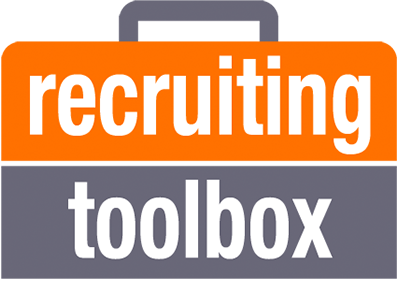Recruiting Toolbox Blog
5 Signals That You're Operating as a Talent Advisor

[This blog post first appeared on the LinkedIn Talent Blog in February 2021]
I’ve written a lot about what it means to be a talent advisor, how recruiters can turn their role into one that’s more strategic, and which methods are best to engage and influence hiring managers so that they’re better at their jobs. And through my consulting firm, Recruiting Toolbox, I’ve trained countless recruiters all over the world.
But now I’d like to touch on the signals that tell you, “Yes, now you’re operating as a true talent advisor.” Here are some examples of those signals, pulled from my real-world discussions with hundreds of hiring managers and talent acquisition leaders who regularly give feedback about corporate recruiter performance.
1. You are trusted for your judgment
- Talent advisors are asked to interview candidates for key roles. It’s my experience that hiring managers who see their recruiters as talent advisors will say something like this: “I don’t want to make this hiring decision without my recruiter’s input. Please make sure they’re on the interview team.”
- They’re trusted by hiring managers to move candidates ahead in the process. “Listen,” they’ll say to someone they view as a talent advisor, “if you think they’re a good candidate after your phone screen, just schedule them for an interview with me. I don’t need to review their resume first. I trust that if you say they’re good, I should meet them.”
2. You are in more meetings (aren’t you lucky?)
- Talent advisors are invited to present more than just req-status updates at department meetings. They’re asked to share overarching talent strategies, diversity wins, training opportunities, and deep dives into metrics. They also facilitate conversations with top leaders who seek more speed, quality, and diversity from their recruiting investments. They regularly get pulled into director-level meetings to copresent at quarterly business reviews.
- They’re trusted to bring insights into conversations with HR and the business, and they’re expected to help shape the overall talent strategy. True talent advisors are seen as at least an equal to their HR partner.
- If a reorg, acquisition, or big hiring ramp-up is being discussed, they’re part of that discussion. Talent advisors don’t find out after the fact that the hiring targets are going to soar. Instead, they’re pulled in to help build the plan and manage expectations against aggressive or unrealistic timelines.
3. You have less administrative work responsibilities
- Talent advisors have managers that work hard to get admin work off their plate. And occasionally, talent advisors will find that business leaders will even ask if their team can help with things like scheduling or planning a recruiting event to free up the advisor to do more high-value sourcing, screening, and closing work.
4. You have more responsibilities
- Talent advisors are sought out by talent acquisition managers, HR partners, and other peers to help lead projects and programs. These key partners want a talent advisor’s feedback and insights about recruiting, for sure, but they also want to hear about the hiring teams they support, the markets they recruit from, and the diversity, compensation, and interviewer capacity issues they face, as well as a host of other issues.
- They get tapped to mentor other recruiters, as they’re eager for a role model demonstrating the talent advisor approach.
- They often get put on the TA manager promotion path. I’d suspect that more than half of the managerial promotion decisions made among a team of recruiters is tied to a person having business-facing talent-advisor skills.
5. You may get mixed feedback from traditional hiring manager surveys
- When a company surveys hiring managers for feedback on recruiting, talent advisors may actually get mixed results. Why? Because most surveys have a traditional, transactional-recruiter orientation — the questions focus on hiring manager satisfaction, and many talent advisors are not people-pleasers just looking to make the hiring manager happy.
- Instead, talent advisors push back when a hiring manager is unrealistic, don’t accept bad processes from hiring teams, and don’t send 50 applicant resumes for the hiring manager to review. As a result, talent advisors may suffer in these surveys because of these old-school questions, and they get lower ratings from those (usually weaker) hiring managers who just want a recruiter who takes their order.
Final thoughts
These are just five examples, but I’m sure you’ve seen even more. What are other signals you’ve seen that indicate that you’re operating as a talent advisor? Please share with me on LinkedIn or Twitter.
If you’ve read this, and want some suggestions on how to become a stronger talent advisor, check out TalentAdvisor.com for a bunch of podcasts, articles, and free training-quality videos, including the No. 1–rated LinkedIn Talent Connect session I delivered on how to be more strategic without buying stuff.
To receive blog posts like this one straight in your inbox, subscribe to the blog newsletter.
